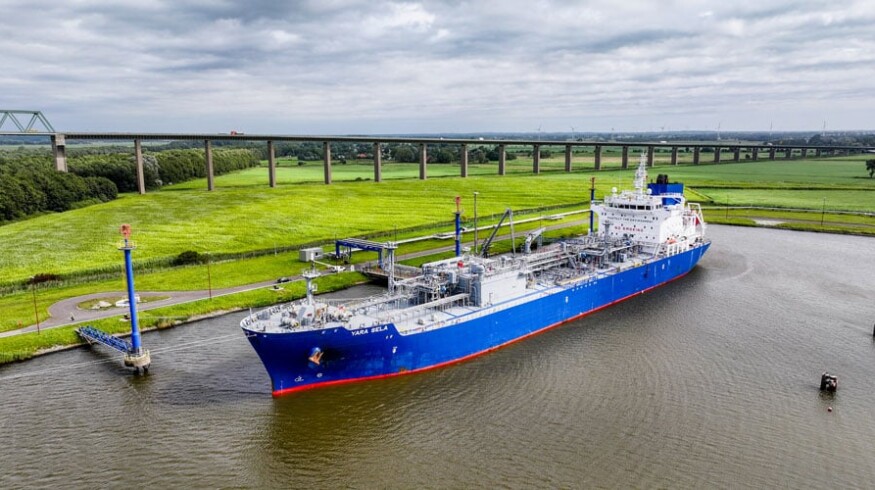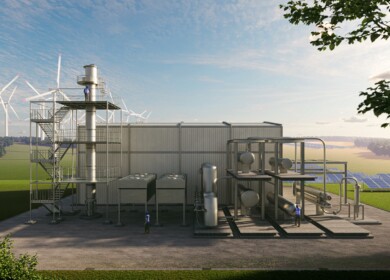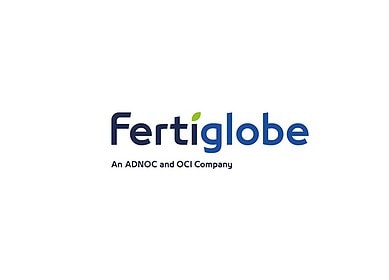Yara expands operations with new ammonia import terminal

Yara International has officially inaugurated its new ammonia import terminal in Brunsbüttel, Germany, on October 2. This facility positions the company as a key player in supporting Germany’s hydrogen economy, enabling the import of up to three million tonnes of low-emission ammonia annually. The terminal’s strategic location on the North Sea and the Kiel Canal is expected to facilitate this import capacity, aligning with Germany’s ambitions for a sustainable energy future.
Representatives from both German and Norwegian authorities attended the inauguration, underscoring the collaborative efforts between the two countries in advancing energy solutions. Yara’s initiative is part of a broader strategy to enhance its nitrogen business while driving value-accretive growth in a low-carbon economy. The terminal will allow Yara to import low-CO2 ammonia, which can be converted into hydrogen at the point of use, thus supporting various industrial applications, including steel and chemicals, which are critical to Germany’s economic landscape.
Hans Olav Raen, CEO of Yara Clean Ammonia, stated that the company is well-positioned to ensure a competitive supply of low-emission ammonia to Germany, thereby catalyzing the German hydrogen economy. He highlighted that the capacity of three million tonnes of ammonia corresponds to approximately 530,000 tonnes of hydrogen, contributing around 5% of the total European hydrogen target for 2030.
The anticipated demand for low-emission ammonia in Germany is substantial, with the Federal Ministry for Economic Affairs and Climate Protection projecting that by 2030, up to 70% of national ammonia requirements will need to be imported. This demand underscores the importance of the new terminal in facilitating Germany’s energy transition.
Low-emission ammonia can be produced through electrolysis using renewable energy or through carbon capture and storage (CCS), making it a viable option for decarbonizing sectors that are difficult to electrify. In addition to traditional fertilizer applications, low-emission ammonia has promising uses as a shipping fuel, for reducing emissions in refineries, and in power generation.
Yara’s commitment to sustainability extends beyond Germany. In June, the company opened a renewable hydrogen pilot plant in Norway, noted as the largest of its kind in Europe. This plant serves as an important stepping stone towards a more sustainable energy framework and reinforces the energy partnership between Germany and Norway.
Enjoyed this story?
Every Monday, our subscribers get their hands on a digest of the most trending agriculture news. You can join them too!














Discussion0 comments